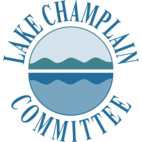Other Water News From Near and Far
Colchester Calls for Better Water Protection from Farms
Kudos to the Colchester Select Board and town officers for taking local action to protect water quality! Concerned about increased nutrient loading to Malletts Bay, they recently passed a resolution calling for greater agricultural controls in the Lamoille and Winooski River watersheds. The resolution specifically asks Vermont's agricultural agency to require farms to fence livestock out of streams and comply with 20 foot buffer strips along perennial waterways.
Next Step in Farm Runoff Battles
In our last Enews we reported that disappointingly the Vermont Agency of Agriculture opted not to require mandatory best management practices for farms with identified critical source areas of phosphorus loading. The Conservation Law Foundation will take the state to court to try and force them to implement these practices.
Changing Times for Lake Trout
A new report from the Nature Conservancy assesses the impacts of climate change on lake trout in the Adirondacks. Lake trout are present in an estimated 102 cold, deep, rocky Adirondack Lakes. Native populations are self-sustaining in half of those and supported or maintained by stocking in another three dozen. Climate change is expected to eliminate a significant amount of the region's coldwater fish habitat over the next century. This is especially true for smaller lakes and those with impaired water quality. However, lake trout appear likely to persist in certain deep lakes if action is taken to minimize stormwater inputs, introduced species and other stresses. Lake trout require a demanding combination of very cold (<55°F) and highly oxygenated water.
The Adirondacks' high elevation, remote waters and land use protections may present one of the best chances in the lower 48 states to retain viable inland refuge for lake trout in a warmer, stormier climate.
First Day Hikes
Start the New Year off right with some fresh air and exercise. Vermont Forests, Parks and Recreation is offering New Year's Day hikes at some of popular state parks including Grand Isle and Niquette Bay on Lake Champlain. Check out the options to go take a hike!
Belching Cows Win Out in Spending Bill
While the spending bill that passed Congress contained good news for Lake Champlain funding (see "Lake Champlain Wins In Federal Budget Bill" article above), there were a number of anti-environmental riders snuck in. EPA will now have a hard time implementing proposed rules LCC strongly supported to define 'waters of the United States'. They are also now prohibited from even collecting data about methane generated by manure lagoons and its impact on global warming. Learn more here.
Source of Great Lakes Pollution Shifts from Air to Land
Research from the University of Rhode Island suggests that the major sources of pollution loading to the Great Lakes has shifted from airborne deposition to landside runoff. The trend has been helped by stopping production of some persistent pollutants like PCBs, concentrations of which have dropped in the atmosphere. On the other hand, emerging contaminants from personal care products and industrial flame retardants have become more common.
Farmers Told to Use Less Fertilizer & More Microscopes
Farmers need to break out the microscopes to get a better sense of their soils. That’s the message a renowned soil scientist delivered to farmers in the Chesapeake Bay area. It’s about much more than just phosphorus and nitrogen, healthy soils also need the right microbes and mix of air and water to release those nutrients for plants.
Take a Lake Quiz
How much do you know about lakes? Test your knowledge with this fun short quiz. Questions range from informative to amusing to just plain weird. Don’t expect to get them all right, but you will learn something.
